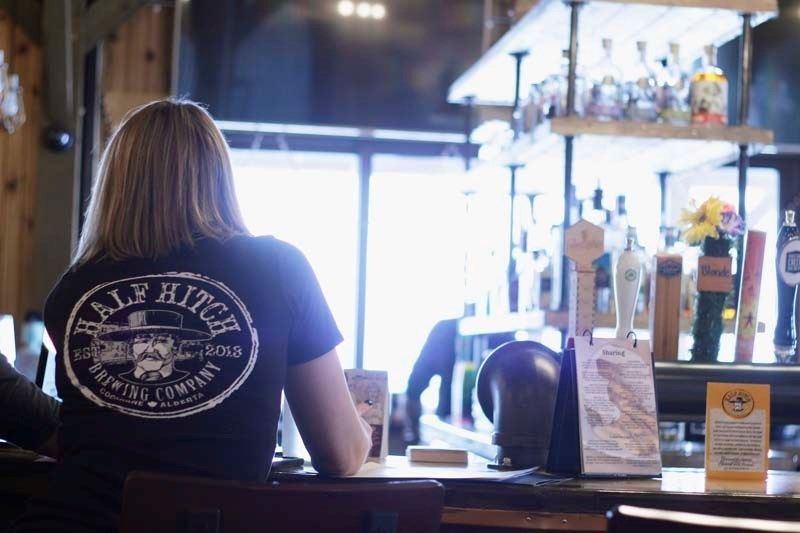Community business owners are feeling the affects of government polices that have contributed to Alberta’s falling grade in business friendliness toward bars and restaurants.
Restaurant Canada, a bar and restaurant advocacy group, released a report card last week showing Alberta earned a B-minus an entire grade drop from the 2015 report.
The organization described recent policies as hostile, and specifically referred to an increase to provincial liquor mark-ups on beer, wine and spirits, and the government’s decision to cancel the liquor server wage. The latter had long been in place to recognize that servers earn gratuities in excess of minimum wage.
“Labour costs in our industry are second only to food and beverage costs, so when the government decides to increase both at the same time, the math doesn’t add up for bar and restaurant owners,” said Mark von Schellwitz, Restaurants Canada’s vice-president, Western Canada, in a press release. “For the government to hit businesses with these extra costs during a recession adds insult to injury,” he added.
Gradey McMahon, the director of restaurant operations at Cochrane’s new Half-Hitch Brewing Company, a pub that opened in January 2017, said the restaurant lucked out by having notoriety around town from the get-go, but he said the minimum wage increases to servers might soon hurt the restaurant.
“That definitely affects us and how we schedule and how we staff,” said McMahon.
The current minimum hourly wage is $13.60 and is set to hit $15 per hour by October 2018. Two years ago, when Alberta earned a B+ from Restaurants Canada report card, the liquor server wage was $9.20 per hour.
McMahon said that as the servers’ hourly wages creep closer to the back of house staffs’ hourly wage, it creates unfairness.
“It was nice when there was that gap just because there’s already that disparity in wage from front of house,” McMahon said, explaining that servers are typically transient, university students whereas the cooks are often in it for the long haul as a career.
“That’s people trying to make a living and this is their choice and what they want to do. It’s tough for them when they see how much the servers are bringing in on just a part time kind of basis and they’re working hard in the back – they just don’t see the same thing,” he said.
McMahon said though it would be nice to continue paying back of house a percentage more that front of house staff, it isn’t sustainable.
“We can’t continue to pay the cooks ‘X’ number of dollars more than a server every time the wage goes up,” he said.
In regards to the liquor mark ups, McMahon said it’s had less of an impact on the brewery-restaurant.
“It’s not significant when you spread across the number of drinks you get out of every bottle that we purchase,” McMahon said, adding that the mark ups also don’t take a large toll on their beers since they only serve Alberta-made craft beer.
Other locally-owned Cochrane restaurants with shallower pockets are not as lucky.
Pierre Langlois, owner of the Portofino Italian Ristorante located near Cochrane’s core, said he has had to cut hours from staff in order to absorb the rising costs of minimum wage and liquor, and often times, it means he has to step up in their place.
“One night I cancelled a server, and I’m the server, I cancel the dishwasher and then I’m the dishwasher, I cancel a cook and then I’m a cook,” Langlois said.
His staff, which most have been working at the restaurant for years, is at least understanding, he said.
“They need to work but they also understand that I can’t afford to pay them like the way it was two years ago.”
Francesco Tradati, owner of The Boot, also located near the town’s core, echoed the concerns of having to pay servers more but said for the time being his business is doing well.
“We’ll see. As long as everything is good, I don’t see any reason to cut, but it’s an option,” Tradati said.




